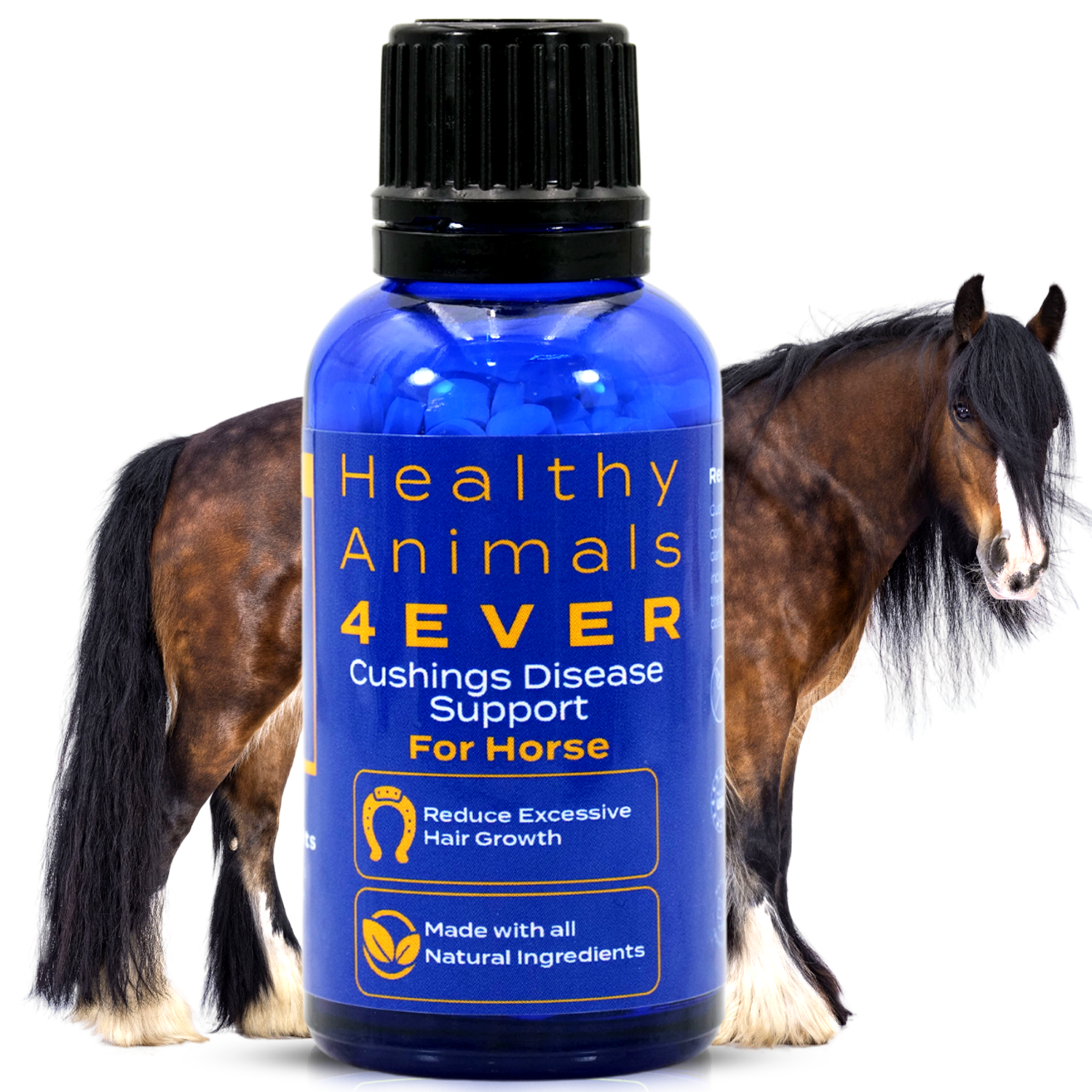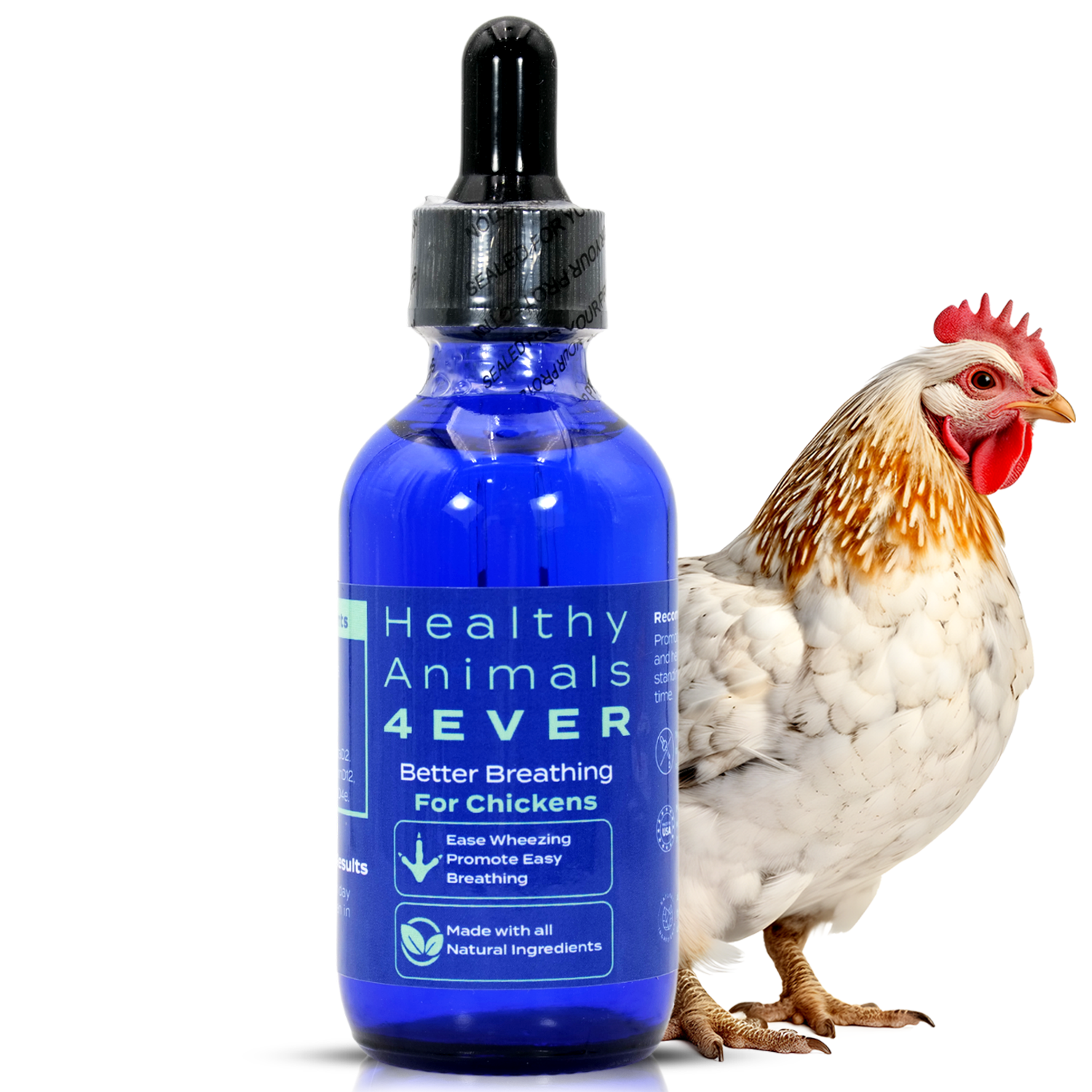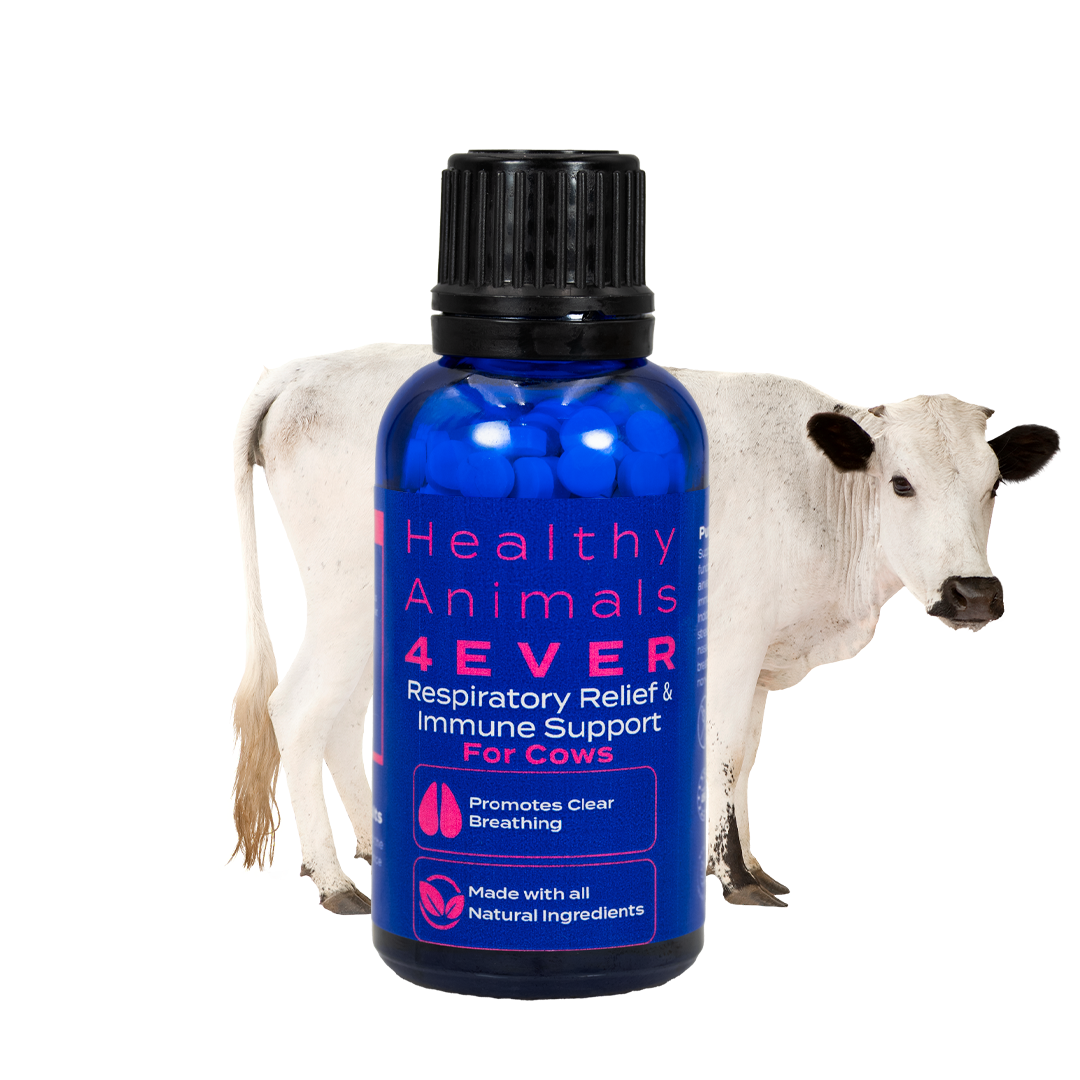Holiday Pet Care: A Comprehensive Guide to Alleviating Stress and Anxiety in Your Pets
As the holiday season approaches, our homes often transform into lively spaces filled with joy and festivities. However, it's essential to consider the well-being of our cherished companions—our pets. The holidays, with their festive decorations and bustling activities, can sometimes bring stress and anxiety to our furry friends.
In this blog, we'll explore practical tips and insights to help you understand and address the holiday-related anxieties that your pets might experience. From maintaining their routines to considering holistic approaches like homeopathy, we'll provide you with a comprehensive guide designed to make the holiday season joyful and peaceful for you and your beloved pets.
Anxiety and Over-Reaction from Fear is a natural remedy for calmness and reduced fear in dogs. It helps minimize stress and fear responses. Useful for generalized, separation, social, and environmental anxiety.
Why can pets feel anxious during the holiday season?
- Change in Routine: During the holidays, people often have different schedules. They may be busier or have more visitors at home. This can confuse pets because they are used to a routine. Imagine if you usually eat dinner at 6 PM, but suddenly at 8 PM. You may feel confused or worried. That's how pets can feel when routines change.
- New People and Noises: Holidays usually mean more people around; sometimes, there are noisy celebrations. Pets may become overwhelmed with big parties with many people talking, laughing, and even fireworks outside. They might get scared or anxious with all the new sounds and faces.
- Decorations and Strange Objects: Holiday decorations can be exciting but also strange for pets. Pets might find them curious or even a bit scary. They might not understand why everything looks so different.
- Changes in Smells: Pets rely a lot on their sense of smell. When you bring in new decorations, food, or even guests, it brings in new smells. It can be confusing for pets, and strong smells can make them uneasy.
- Less Attention: With all the holiday hustle and bustle, people get busy and may forget to spend as much time with their pets. Pets might feel lonely or neglected, and that can make them anxious.
In simple terms, holidays can be a big, confusing party for pets. Changes in routine, new people and noises, strange decorations, different smells, and less attention can all make them anxious. Pet owners must know this and keep things as calm and familiar as possible during the holidays.

Signs of stress and anxiety in pets:
Pets can show signs of stress and anxiety, and pet owners need to recognize these signals. Here are some critical signs of stress in a dog, cat, or other pet:
- Changes in Behavior: Unusual behaviors, such as hiding more than usual, being overly clingy, or acting more aggressive or withdrawn than usual.
- Changes in Eating Habits: Loss of appetite or excessive eating. Sudden changes in eating habits can indicate stress.
All Digestive provides natural digestive support for cats. Helps with stomach upset, diarrhea, and gastritis. It aids in restoring digestive balance and your pet's comfort.
- Excessive Grooming or Scratching: If your pet is grooming themselves excessively or scratching more than usual, it could be a sign of stress or discomfort.
- Avoidance of People or Other Pets: If your ordinarily sociable pet avoids interactions with people or other animals, it might be a sign of stress.
- Potty Accidents: Sudden accidents in the house, especially if your pet is usually well-trained. This could be a sign of stress.
- Changes in Sleep Patterns: Difficulty sleeping or sleeping more than usual. Disruptions in sleep patterns may indicate stress.
- Destructive Behavior: Chewing furniture, shoes, or other items when your pet doesn't usually do so. This can be an outlet for anxious energy.
- Excessive Vocalization: Unusual barking, whining, or meowing. Excessive vocalization can be a way for pets to express stress.
- Trembling or Shaking: Physical signs like trembling or shaking, especially in situations that didn't bother your pet before.
- Changes in Body Language: Watch for signs like a tucked tail, flattened ears, or a hunched posture. These can indicate stress or discomfort.
It's important to note that these signs can vary between individual pets, and some pets may show different behaviors when stressed.

How can homeopathy help your pets during the holidays?
Homeopathy is a form of alternative medicine that uses natural substances to stimulate the body's healing processes. It can help pets with anxiety or stress, including during the holidays. Here's a general understanding of how it works:
- Individualized Approach: Homeopathy often takes an individualized approach. The treatment is chosen based on your pet's specific symptoms, behaviors, and overall health. It's not a one-size-fits-all approach, and a homeopathic practitioner may ask detailed questions about your pet's behavior to tailor the treatment.
- Holistic Perspective: Homeopathy looks at the animal's well-being rather than treating specific symptoms. It considers your pet's physical, mental, and emotional health. This holistic perspective addresses the issue's root cause, not just the surface symptoms.
- Gentle and Non-Invasive: Homeopathic remedies are generally considered gentle and non-invasive. The substances used are highly diluted, and the idea is that they stimulate the body's natural healing mechanisms. Homeopathy is a potential option for pet owners who prefer natural and less intrusive approaches.
- Stress and Emotional Balance: Homeopathy is suggested for pets experiencing stress or emotional imbalance. During the holidays, with changes in routine and surroundings, some pets may exhibit signs of anxiety. Homeopathic remedies are thought to help balance emotions and alleviate stress.
- Minimal Side Effects: Because homeopathic remedies are highly diluted, they have minimal side effects. This can reassure pet owners concerned about adverse reactions to more potent medications.

10 homeopathic remedies to alleviate stress and anxiety in pets:
The following are a few commonly used homeopathic remedies that can help alleviate stress and anxiety in their pets. Be sure to give them a try.
- Aconitum Napellus
- What it Helps With: Aconitum is often associated with sudden and intense fear or anxiety. It may be used when a pet is frightened or agitated due to a specific event, like thunderstorms or fireworks.
- How it Works: It is believed to help calm the nervous system and reduce the intensity of acute fear or panic.
Aggression and Frustration Reduction (for dogs) provides natural support for aggressive dog behavior, excessive barking, nervousness, and anxiety. Helps alleviate stress and fear.Aggression and Frustration Reduction (for cats) provides natural support for aggressive cat behavior, excessive barking, nervousness, and anxiety. Helps alleviate stress and fear.
- Arsenicum Album
- What it Helps With: Arsenicum is often considered for pets experiencing restlessness, pacing, and anxiety, especially when there is a fear of being left alone.
- How it Works: It is thought to help ease feelings of insecurity and bring a sense of calmness.
- Ignatia Amara
- What it Helps With: Ignatia is often used for pets showing grief, sadness, or emotional distress. It may be beneficial when there has been a loss or change in the pet's environment.
- How it Works: It is believed to help balance emotions and reduce the impact of emotional stressors.

- Chamomilla
- What it Helps With: Chamomilla is commonly used for pets that appear irritable, agitated, or overly sensitive. It may be suitable for animals that become easily upset or distressed.
- How it Works: It is thought to have a calming effect on the nervous system and help soothe irritability.
- Phosphorus
- What it Helps With: Phosphorus may be considered for fearful and anxious animals, especially in new or unfamiliar situations. It can also be used for pets with a fear of the dark.
- How it Works: It is believed to have a grounding effect and help pets feel more secure in challenging situations.
Anxiety and Over-Reaction from Fear is a natural remedy for calmness and reduced fear in cats. It helps minimize stress and fear responses. Useful for generalized, separation, social, and environmental anxiety.
- Lycopodium Clavatum
- What it Helps With: Lycopodium is often used for pets that display anxiety, especially when faced with new people or environments. It may be helpful for pets that become nervous around strangers.
- How it Works: It is thought to address feelings of insecurity and help pets adapt to new situations more comfortably.

- Pulsatilla
- What it Helps With: Pulsatilla is commonly considered for pets with clinginess and seeking comfort. It may be used for pets that become anxious when separated from their owners.
- How it Works: It is believed to help pets feel more secure and less anxious when alone.
- Gelsemium Sempervirens (Gels.):
- What it Helps With: Gelsemium is often used for pets that experience anticipatory anxiety, such as before a vet visit or travel. It may be suitable for animals that feel weak, shaky, or lethargic due to anxiety.
- How it Works: It is believed to help calm nervous anticipation and reduce physical symptoms of anxiety.
Traveling/Motion Sickness (for dogs) provides motion sickness aid for dogs. Helps with anxiety and stomach upset associated with traveling. It may prevent vomiting and other issues related to motion sickness.Traveling/Motion Sickness (for cats) provides motion sickness aid for cats. Helps with anxiety and stomach upset associated with traveling. It may prevent vomiting and other issues related to motion sickness.
- Natrum Muriaticum (Nat. Mur.):
- What it Helps With: Natrum Muriaticum is considered for pets that exhibit anxiety or grief following a loss or change in their environment. It may be helpful for animals that seem reserved or avoid social interactions.
- How it Works: It is thought to address emotional imbalances and support pets in coping with changes.
- Thuja Occidentalis (Thuja):
- What it Helps With: Thuja is sometimes used for pets with anxiety related to vaccinations or medical treatments. It may be considered when fear or nervousness is associated with specific health-related activities.
- How it Works: It is believed to help balance the body's response to stressors and ease anxiety linked to medical procedures.

15 tips to manage anxiety in your pets:
Let's go through 15 simple tips to help your pets feel more comfortable during the holidays:
1. Stick to Routine:
Try to keep your pet's daily routine as normal as possible. Feed them at the usual times, go for walks like always, and give them attention. This helps them feel secure and not too confused by all the holiday changes.
2. Create a Safe Space:
Make a cozy and quiet space for your pet to go if things get too overwhelming. It could be a room with their bed and some familiar toys. This gives them a retreat when they need a break from all the holiday hustle.
3. Introduce Decorations Gradually:
If you're adding new decorations, do it slowly. Let your pet sniff and explore these things one at a time. This way, they can get used to the changes without feeling overwhelmed.

4. Manage Noise:
Pets can be sensitive to loud noises. If you're having holiday celebrations with fireworks or loud music, consider creating a quiet space for your pet away from the noise. You can also use soft music or white noise to help drown out loud sounds.
5. Provide Familiar Smells:
Keep some familiar scents around, like their favorite blanket or toy. This can comfort them amid all the new smells of holiday decorations, food, and guests.
6. Offer Treats and Playtime:
Give your pet some extra attention. Play with them, offer treats, or take extra time for cuddles. This reassures them they're still important to you even during the holiday activities.

7. Watch Their Body Language:
Pay attention to your pet's body language. If they seem stressed or anxious, take a break and spend some quiet time with them. Pets communicate a lot through their behavior, so watching for signs of discomfort can help you respond appropriately.
8. Ask Guests to Be Pet-Friendly:
If you have guests coming over, tell them about your pet and ask them to be mindful. Some pets may not be comfortable with strangers, so it's good for guests to approach slowly and calmly. If your pet needs space, make sure guests understand.
9. Use Calming Products:
Consider using calming products like pheromone diffusers or sprays. These products release substances that can help relax your pet. You can find them at pet stores, and they often come in the form of plugins or sprays that create a calming atmosphere.

10. Keep Dangerous Items Away:
Some holiday decorations or foods can be harmful to pets. Ensure to keep things like tinsel, ribbons, and chocolate out of reach. These items might look attractive to pets but can be dangerous if ingested.
11. Plan Quiet Time:
Build in some quiet time for your pet each day. This could be a peaceful walk or a cozy time on the couch together. Amidst the holiday excitement, having a calm moment can benefit your furry friend.
12. Gradual Introductions to Guests:
If you're having guests over, especially if they have their own pets, introduce them to your pet slowly. Allow your pet to sniff and get used to the new people. This gradual approach can help prevent any sudden scares.
13. Stick To Their Regular Diet:
Avoid sharing human treats with them, especially those containing ingredients like onions, garlic, or artificial sweeteners. Stick to their regular diet to prevent any upset stomachs.
All Digestive provides natural digestive support for dogs. Helps with stomach upset, diarrhea, and gastritis. It aids in restoring digestive balance and your pet's comfort.
14. Include Pet-Friendly Decor:
Incorporate pet-friendly decorations into your holiday setup. For example, you can use pet-safe ornaments or create a pet-friendly corner with their toys. This way, they can feel included in the festivities without feeling overwhelmed.
15. Exercise Regularly:
Ensure your pet gets enough exercise. Regular walks and playtime can help burn off excess energy and reduce stress. A tired pet is often calmer, so keeping up with their exercise routine is essential during the holiday season.

Remember, each pet is unique, so you may need to adjust these tips based on your pet's preferences and sensitivities. By being mindful of your pet's needs and providing a mix of familiar and comforting elements, you can help them navigate the holiday season with less anxiety.

The Bottom Line
As we wrap up our exploration of keeping our pets happy and stress-free during the holidays, it's clear that a thoughtful, patient, and tailored approach is vital. Whether sticking to familiar routines, creating safe spaces, or considering homeopathic remedies, our pets benefit from our understanding and support.
Remember, each pet is unique, and what works for one may differ for another. We can ensure that our furry companions navigate the holiday season with comfort and joy by paying attention to their cues and providing love and care. Here's to creating lasting memories and a harmonious holiday season for you and your cherished pets!
You might also like the following:
















